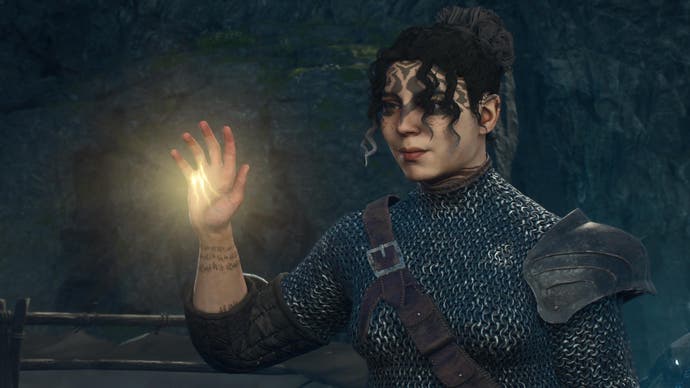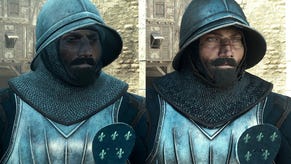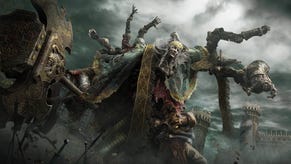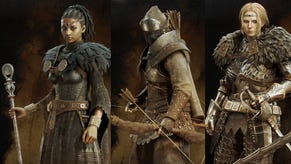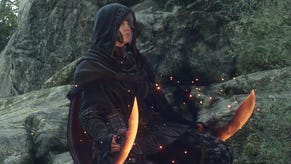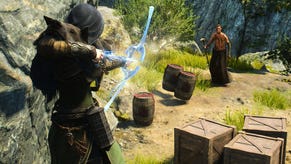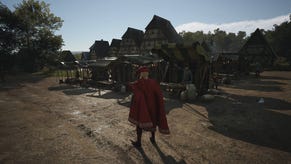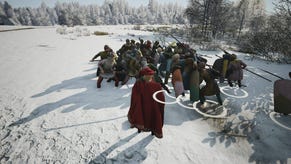Dragon's Dogma 2 best Pawn Inclinations
The best Inclination for each Pawn Vocation.
Dragon's Dogma 2 Pawn Inclinations govern how your allies act in battle and often makes the difference between a successful encounter and miserable defeat.
You can slide through the first few hours of Dragon's Dogma 2 without giving much thought to the kinds of Pawns you fight with, but matching Inclinations with Vocations becomes much more important once you start encountering steeper challenges.
Dragon's Dogma 2 is happy to let you guess how each Inclination influences Pawns, so we've prepared this guide explaining how Pawn Inclinations work and the best Pawn Inclinations in Dragon's Dogma 2 for each Vocation.
On this page:
Best Pawn Inclinations in Dragon's Dogma 2
Picking the right Inclination helps bring out your Pawns' Vocational strengths and cover their weaknesses. While some Vocations only work with a specific Inclination, you have a bit of flexibility with others, which makes recruiting Pawns easier and often less expensive.
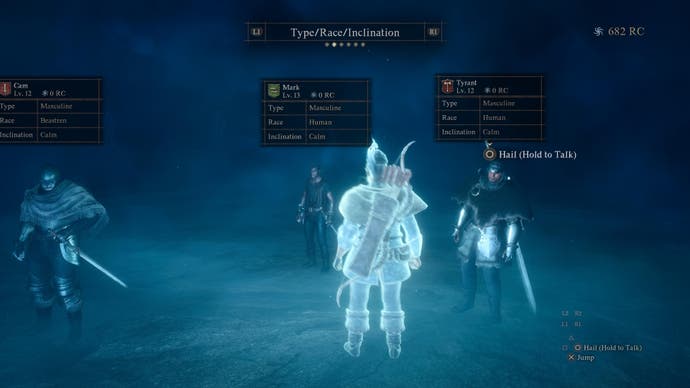
We've outlined our top picks for the best Pawn Inclination for each Vocation below. Bear in mind that hybrid advanced Vocations - such as Magic Archer - are for the Arisen only, so you'll never need to think about what kind of Pawn would fit well in those roles. If you want more help planning your Main Pawn, take a look at our best early game Pawn build guide.
Best Pawn Inclination for Fighter
Fighter Pawns should almost always be leading the charge in battle. Unlike with some other Vocations, that means there's not much room for variation with Fighter Inclinations, and you'll want to stick with Straightforward. Straightforward Fighters hunt down enemies, attract attention from challenging foes, and use their strongest skills, albeit often without good planning. Their likelihood of hitting enemy vital points is pretty low, in my experience.
If you're playing as a weaker Vocation, though, you could try a Kindhearted Fighter instead. Kindhearted Pawns stick by your side, which means your Fighter is more likely to use their defensive skills and keep you safe.
Best Pawn Inclination for Warrior
Compared to Fighters, Warriors are more about hitting things really hard and have fewer defensive skills. You want them in the middle of any battle, especially against tough monsters with multiple health bars, so stick with Straightforward for them.
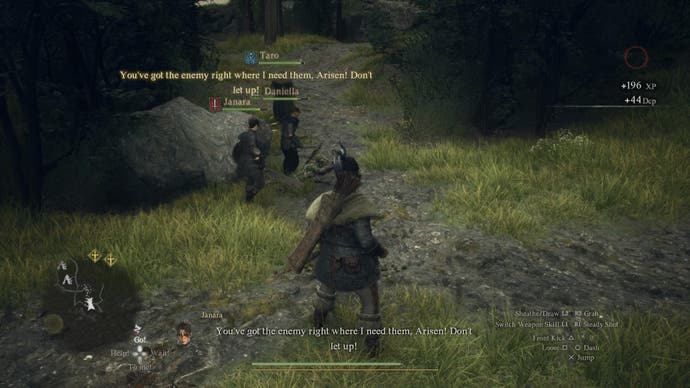
Simple works in a pinch, if you can't find a Warrior Pawn with Straightforward, since they're more likely to rush ahead and draw an enemy's attention.
Best Pawn Inclinations for Mage
Mages have a foot in offense and support roles, which gives you some flexibility when picking Pawns. Kindhearted is perfect if you have trouble staying alive in battle, or you find your mage tends to set enemies on fire instead of tending to your needs. Calm Mages are more likely to leave you behind and take on enemies independently. They're not reckless, but they probably won't heal you unless you command them to.
That said, I've also found that Simple Mages take a middle-of-the-road approach. I played with a Simple Mage for most of the early game, and he split his time between healing and casting offensive spells without neglecting either.
Best Pawn Inclination for Sorcerer
Sorcerers are basically just stronger Mages, but you'll want to draw out their offensive skills and let support take a back seat. Kindhearted works for Sorcerers, but only if you have no other choice. Calm is a much better option, one that will help your Pawn keep themselves safe and, ideally, choose spells that target enemy weaknesses more often.
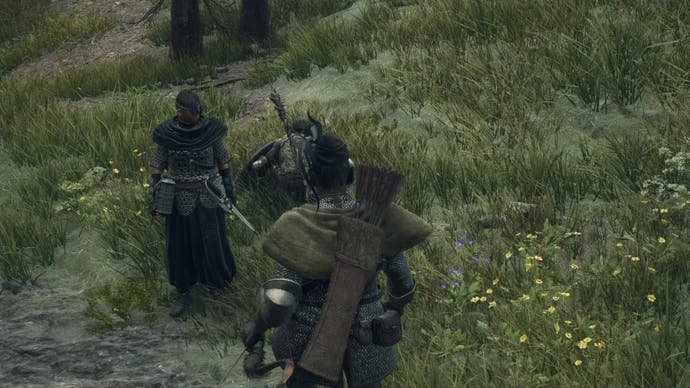
You could opt for Simple as well, if you need to. Simple Sorcerers, like Simple Mages, use a balanced range of skills in battle and usually don't get themselves flattened by an ogre's well-timed butt squash.
Best Pawn Inclination for Thief
A Thief who charges ahead and draws undue attention is a Thief who ends up in the morgue more often than you probably want. The Vocation is a squishy one, so you'll want to avoid Straightforward and even Simple. Calm is the ideal choice for Thieves. Pawns with this inclination are more likely to avoid drawing aggro and will target enemy weak points when possible - traits that fit perfectly with how the Thief Vocation plays.
Best Pawn Inclination for Archer
Archers have almost no close-combat skills, so the last thing you want is your peerless marksPawn rushing headlong into battle and dying instantly.
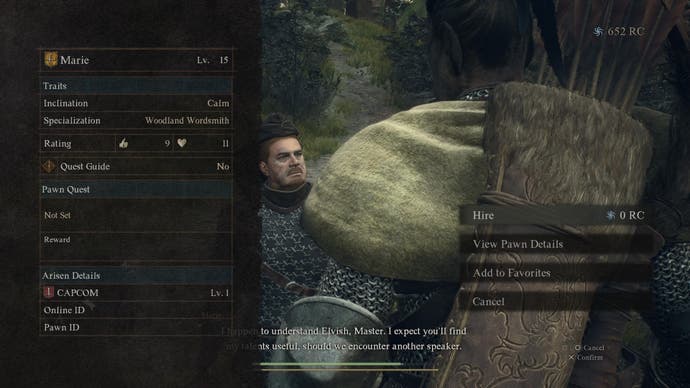
Calm is the strongest Inclination choice for an Archer, especially as it gives them a slightly higher chance of aiming for, and landing shots on, enemy vital points. Calm Archers also keep themselves out of harm's way, something you're less likely to find with Simple or Kindhearted Archers.
We also have a best Archer build recommendation if you're planning on having your Main Pawn follow this class.
Dragon's Dogma 2 Pawn Inclinations explained
The way Dragon's Dogma 2 explains Pawn Inclinations makes them sound like personality traits, which is only partly true. Pawn Inclinations determine how your companions talk and behave when you're in the wild, but they also govern how Pawns act in battle and whether they're likely to attack, defend, or just use their own initiative.
What Kindhearted Pawns do
Kindhearted Pawns fill a support role. They prefer traveling by the side of their Arisen, which means they won't charge ahead to scout for treasure or attack enemies without you directing them to.
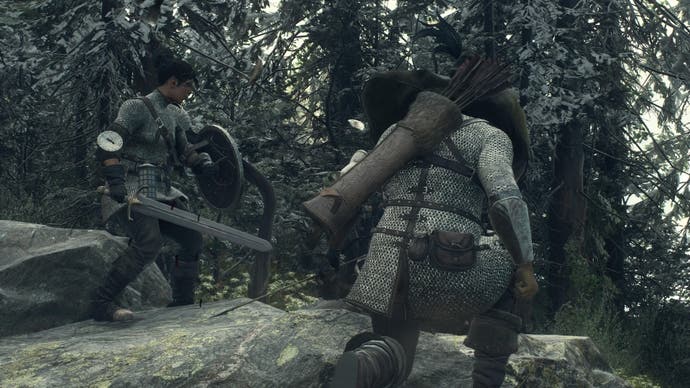
Kindhearted Pawns are more likely to use healing and support skills, which is a blessing and a curse depending on the situation. In most cases, you only want a Mage in a Kindhearted role, and even then, that emphasis on defensive skills limits how useful they'll be in battle.
What Calm Pawns do
Where Straightforward Pawns rush in where others fear to tread, Calm Pawns will carefully assess a situation before acting, and their actions are always geared towards self-preservation.
Calm Pawns also have a quirk outside battle. They'll independently sort through their inventory and discard items deemed unnecessary without consulting you. I never figured out what criteria they used to determine whether something was useful, so your best bet is just not giving Calm Pawns any valuable items.
What Simple Pawns do
The Simple Inclination governs exploration behavior more than tendencies in battle. Simple Pawns will rush ahead and scout for points of interest. They're also more likely to point out treasure chests or collect materials and items when they find them.
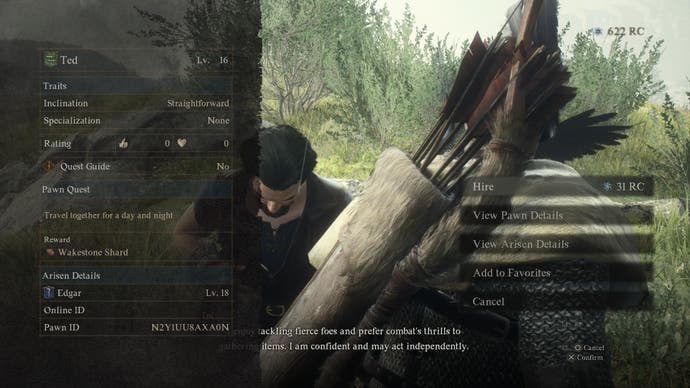
The official description says Simple Pawns will hand over items they find to you, though I found this only happened infrequently. It's not a dealbreaker, though. You can just take items you want from their inventory at any time in the items menu.
In battle, Simple Pawns behave in a way that's hard to describe as anything other than 'normal'. They make reasonable decisions, help you if you're hurt, retreat when things get dicey, and use a - mostly - intelligent range of skills that exploit enemy weaknesses.
What Straightforward pawns do
Straightforward Pawns are probably going to see an enemy before anyone else, and they'll definitely pick a fight with them before anyone else. Straightforward Pawns love being in the thick of battle, and they never retreat, even when faced with overwhelming odds. They'll target the biggest or most dangerous foes first and leave the rest for you and your other Pawns to deal with. That means they're not likely to use support or defensive skills, so don't waste discipline points on those.
Good luck finding the right Pawns with the right Inclination for you!
